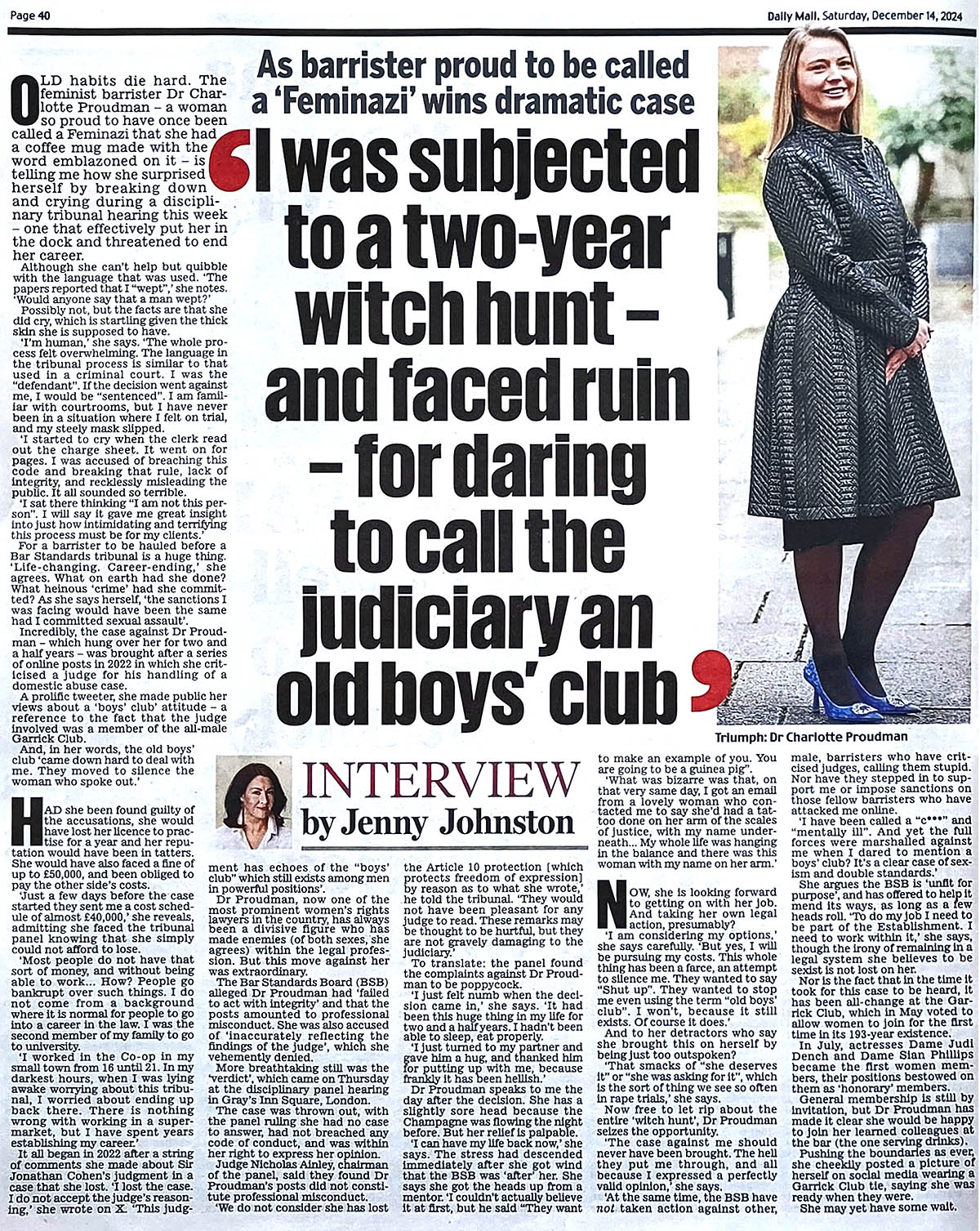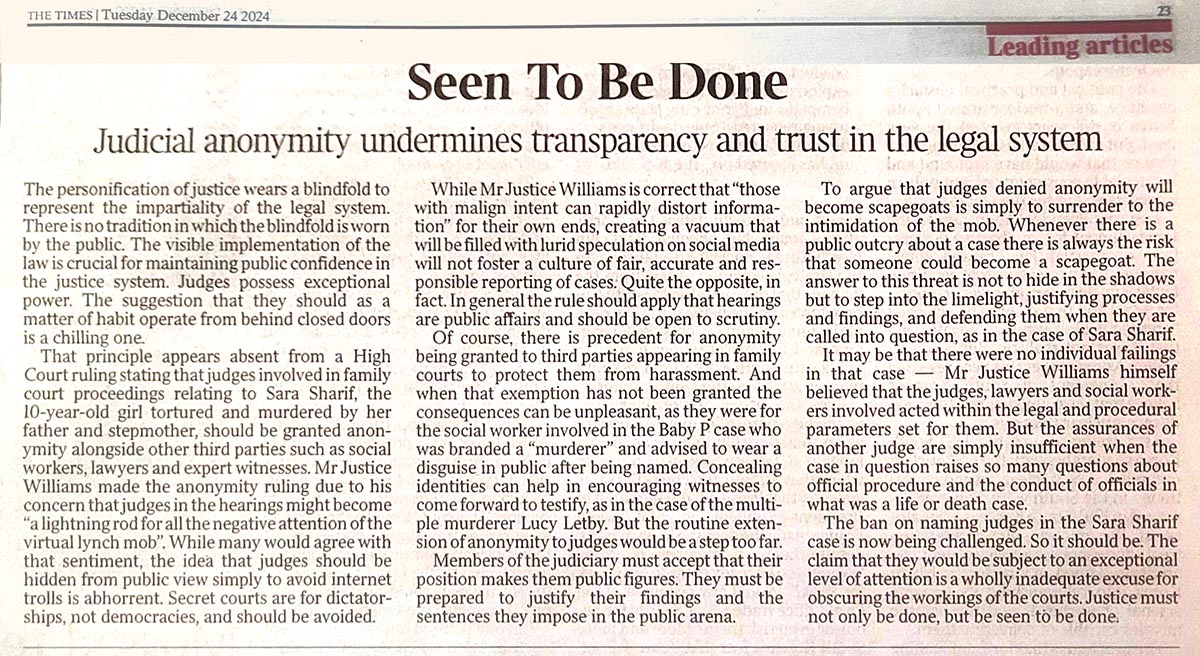By Bianca Castro
21 September 2023
Original article HERE
Barrister Charlotte Proudman got what some will say was her just desserts by way of this Bar Standards Board (BSB) prosecution for allegedly bringing the profession into disrepute when criticising a judge on social media and supposedly misrepresenting the judge's ruling. What goes around comes around ... Charlotte Proudman got what was coming to her ... some will say ... from her over the top past behaviour - as she suffered badly and was worried sick that her career may come to a premature end. BUT criticism of a judge, may, in principle, be fair comment and on this occasion, Dr Proudman came out a winner as the Disciplinary Tribunal ruled that she had no case to answer, and declared that her robust opinions were ECHR Article 10 - freedom of speech - compliant. One IS allowed to say hurtful things of others under U.K common law IF they are reasonably justified. The BSB were doing the judiciary's dirty work for them when trying to teach Ms Proudman a lesson ... as the judiciary hate criticism.

Below is a leading article from The Times newspaper dated 24 December 2024 and it relates to a recent refusal by Mr Justice Williams to allow the Press to name the judge/judges who long ago gave custody of Sara Sharif to her father Irfan Sharif - who went on to abuse, torture and murder Sara who died in Woking in August 2023, aged 10. Irfan Sharif is serving life for murder along with Sara's stepmother. Mr Justice Williams has recently granted an anonymity order for the judge/judges and social workers involved in the custody battle when Sara was sent to live with her evil father Irfan Sharif and evil stepmother.
The thinking behind Williams J's decision is that maybe, if the judge/judges who granted custody to Irfan Sharif is/are identified by the Press there will be extremely unfair criticism and unwarranted abuse of that judge on social media when full details of the custody hearings etc. are examined by the Press, BECAUSE Mr Justice Williams believes the previous custody proceedings were carried out within the parameters of the law and with integrity and that any mistakes were forgivable given one cannot accurately predict future events. BUT the Press would like the chance to thoroughly assess/reappraise the custody proceedings and name the earlier judge/judges when deciding whether he/she/they fouled up.
The judiciary do f**k up all the time. They are not as infallible as they would lead us to believe. AT LEAST in this case - for the truly sickening murder of defenceless, brave and abandoned Sara Sharif - the full facts must come out, so let us wait and see what transpires if and when the judge/judges in question is/are hopefully named, along with the social workers.
The Master of the Rolls Sir Geoffrey Vos has given the Press permission to appeal the decision of Mr Justice Williams, and the hearing will take place in mid-January 2025 before three Appeal Court judges at the Royal Courts of Justice.
The current Lady Chief Justice Sue Carr and her predecessor Sir Ian Burnett DO COVER UP for in-house abusers - when protecting civil servants Ben Yallop, Michele Souris and Alice Rose working in their Private Office. Sir Geoffrey Vos covers up too.
Every day the judiciary at the Royal Courts of Justice use sleight of hand to cheat litigants of justice.
Justice must be seen to be done, come what may. It doesn't always happen.
